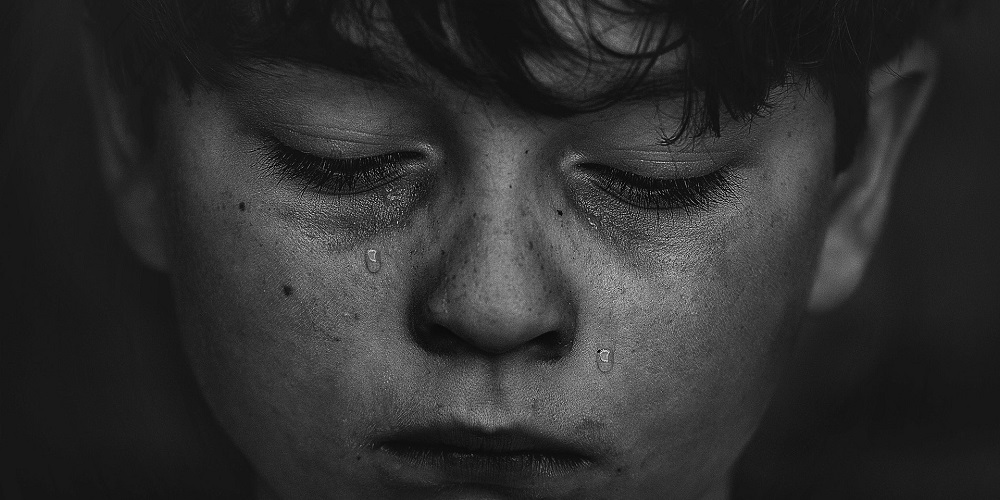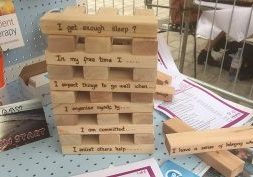Boingboing blogs from… London, England
Reporting back from the ‘Transforming Child and Adolescent Mental Health Services’ Conference in London on Thursday 28 February 2019 – by Angie Hart, Chair of the Board of Directors, Boingboing and Director of the Centre of Resilience for Social Justice, University of Brighton
Angie recently attended a conference organised by the Public Policy Exchange in London on transforming Child and Adolescent Mental Health Services (CAMHS). It was chaired by Neil Wilson, Mental Health Champion and Local Councillor, London Borough of Newham. As part of their HeadStart programme, Newham are implementing the Academic Resilience Approach, which Angie and Lisa Williams co-developed with schools, so it’s always nice to see people from Newham. Louise Bauer who leads the HeadStart Newham schools programme was there too, alongside Blackpool psychiatrist Dr Vasumathi Balaguru. You may know that Boingboing and the Centre of Resilience for Social Justice are supporting the implementation of, and research related to, the National Lottery Funded Resilience Revolution whose engine room is in Blackpool. Here are some snippets from the conference that you can take away without having had to travel to London and pay to attend:
I’ve been hearing a lot about the effects of social media in the news lately, so it’s good to hear some of the background behind the headlines. Dr Bernadka Dubicka, Chair of Child and Adolescent Faculty, Royal College of Psychiatrists (RCP), spoke of the perceived impact of social media. Whilst young people diagnosed with a mental health ‘disorder’ are on social media more than their peers, Bernadka reckons that social media has both benefits and disbenefits in relation to mental health. The RCPCH (Royal College of Paediatrics and Child Health) has just done a study which suggests that there is little evidence for a direct effect of screen time on mental health. The chief medical officer agreed. Bernadka told us about an ace new document from Norman Lamb and colleagues (Science and Technology Committee 2019).
They suggest that social media was not a direct root of risk, but it amplifies and facilitates it. On the other hand there are loads of good things about social media, support groups, information sharing etc. The importance of supporting the most vulnerable groups of children and young people was emphasised. We need to follow Germany’s example says Norman’s report. They have a law that social media companies should take down illegal content within 24 hours. Whether connected to social media or not, we heard the sobering fact that lots of young people who self-harm don’t really want to kill themselves. However, they accidently do. I think that goes for adults too.

Bernadka then launched into a few shock statistics that made us all sit up so early in the morning.
1. For each person with mental health ‘illness’ only 8 quid is spent on research into mental illness. Guess what it is for cancer? Twenty quid.
2. Child and Adolescent Mental Health Services only support one quarter of children and young people with a diagnosed mental health ‘disorder’.
3. There is a massive lack of personnel in this area. We need to recruit six times as many staff as we have at the moment, for example psychiatrists and cognitive behavioural therapists. Calling all caring young adults planning to doss around working part-time in a coffee shop after uni. Train in child and adolescent mental health specialist CAMHS instead.
Kadra Abdinasir, Strategic Lead, Children and Young People’s Mental Health Coalition is up now. She has a wealth of experience including supporting newly arrived refugee children with their mental health. The mental health coalition’s aims include mental health prevention and promotion alongside early intervention and tackling inequalities. I really do think Boingboing should join. She’s talking about the government’s Green Paper on transforming child and adolescent mental health. She told us about the government’s ambition to roll out new mental health support teams in schools and colleges with 25 pilot sites identified. I’m a bit glum because Blackpool isn’t on that list. There is so much to learn from what they are doing in schools. I’m slightly cheered by her mentioning that the government has signed up to make things work for the most disadvantaged children, including LGBTQ+ children, those living in poorer households and those with parents with mental health difficulties.
Ang is eager for specific examples of course. Note to self, ask later if I put my hand up high enough and my new best friend Chair and Newham Councillor Neil picks me, not yet tired of my warblings. Kadra explains that Mental Health First Aid is being offered to all secondary schools so young people can be educated to support their own mental health. Not that it’s all about us at all, but did you know that the Mental Health First Aid Training includes our Resilience Framework? Kadra mentions the need for a whole school approach to mental health. At the risk of irritating you, I’ll take this chance to point you in the direction of some resources we have lovingly put together. Remember that Boingboing’s free ARA web resources can help with all this school-based mental health support work. And look out for our exciting new guide to supporting mental health difficulties in schools developed with Blackpool’s Resilience Revolution Engine Room chums.
During the day we also hear from Debbie Roche, Chair of the charity MaleVoicED. She is a parent of a son with a diagnosis of anorexia, and Debbie came in to back up what Bernadka had said earlier in the day. We heard that CAMHS have one year waiting lists. And that there is a massive lack of people who want to work in child and adolescent mental health. I was starting to get a bit despondent coz this conference was supposed to be about transformation. However, I perk up when she mentions the phrase ‘exemplary practice’. Frustratingly Debbie doesn’t spell out any specifics so I clocked that to ask her about later. (In answer to my question later on she mentioned that Plymouth started something good two years ago, ahead of the game. The secondary schools all top sliced some dosh and bought in mental health support, but now the government are making mental health mandatory in all schools, in case you didn’t know that.)
During her actual talk she did mention the example of ‘Dementia Friends’, people who volunteer to support people with dementia. Perhaps we can learn from that in relation to children’s mental health? Well folks listen up because we have an experiment that does just that. Years ago I went round asking kind-looking rich people if they would give me a million quid to set up supporting the most disadvantaged children with a friend for life. The National Lottery Community Fund has since funded Blackpool’s aptly named Friend for Life trial to do just that for children in the foster care system. They certainly don’t have anything like a million to do it, but it’s a start, thank you National Lottery. Keep an eye on it as others might like to start their own up if it proves effective. Or if you’re an innovative type get started with it anyway. Blackpool would love to share their learning.
In terms of working with young people who are easily ignored, MacUK, The Prince’s Trust and Plymouth Octopus Project and other organisations were mentioned, but strikingly I’m wondering to what extent these groups and services are integrated with specialist CAMHS. Conference delegates are told that the new integrated CAMHS service in Manchester has put a significant investment in youth work. Now that is very interesting indeed and I was eager to find out more. (Sorry I didn’t coz Bernadka disappeared after the exceptionally tasty lunch. I’ll email her and tell the world what they are up to once I find out. In the meantime here is some detail on the Positive Practice website which is probably somewhere else in more user-friendly lingo.)
Julia Faulconbridge, Chair of the Division of Clinical Psychology at the British Psychological Society was an enthusiastic speaker. She’s all about prevention. Julia introduced delegates to Bronfenbrenner’s socioecological approach, possibly a slight mistake to bill her straight after lunch on that ticket. Fear not. Sorry to be a big boaster but we have explained these kinds of approaches in simple ways. They are very dear to our hearts at Boingboing and the Centre of Resilience for Social Justice. Check out our website to download easy to read guides to our approaches which are all based on socioecological perspectives. Some delegates are looking a bit Bronfenbrennered Out, but I’m all for Julia’s stance. So nice to hear someone talking about the impact of poverty and wider inequalities on child mental health. Well, not exactly nice, but you know what I mean – refreshing, perhaps is a better word.

Julia talks a bit about resilience. I’m pleased to see that she takes a sensible view of resilience, emphasising that it isn’t just about kids being somehow invincible. Yes indeedy, it’s about what families and communities do to support children as well as being about the odd child who rises above it all themselves and makes other kids miffed by their incredible self-control, genius and fortitude. Wish she’d mention our Beating the Odds and Changing the Odds approach, but perhaps she hasn’t looked at the Centre of Resilience for Social Justice’s or Boingboing’s website yet. Why don’t we get invited to talk at the Public Policy Exchange conferences I’m grumbling to myself. Then I remember that they did invite me once and I wasn’t available. Well I am now folks and so are my Boingboing chums so get planning something that draws in people far and wide to hear what we’ve got to say. Or even better, invite some of the fabulous young people from Blackpool leading the Resilience Revolution. They are truly awesome and can teach us all a thing or two. You can listen to young people’s experiences in the Revolution Researchers’ team on YouTube. They are waiting for your call. And if you can’t get them to come to you, save up for our International Resilience Conference (September 2021), where older minds will be truly blown by the youth of today. They have been developing resilience expertise for years and I promise it won’t be a case of a few young people just being wheeled out as window dressing.
Psychiatrist and family therapist Arnon Bentovim, Director at Child and Family Training, is talking now about what practitioners can do to support children and families build on strengths and overcome difficulties. Arnon is plugging what I thought was a new set of resources he’s developed with colleagues at his organisation, which works to promote evidence-based assessments and interventions. I’ve just sneaked a look at a sample copy on the table and they are dated 2016. In fact I remember now that I have some on my bookshelf which you can borrow if you like. You can download the introduction and overview but if you want to own the rest they are 25 quid each. I did complain to him about the price, but he says his organisation is a not for profit training organisation, so if you really want them, don’t be stingy. At the age of 82 I’m sure he’d rather be relaxing in a farmhouse in France instead of producing this stuff. Good on him, they deserve to be widely used, but I still wish he’d put them up on the internet for free. In fact I’d even do it for him so he doesn’t have to bother.
These approaches address explicitly anxiety, depression, trauma and conduct difficulties. Their framework is organised around 47 specific elements that all work in an integrated way to support children and families. This sounds a bit like the Resilient Therapy work and the Resilience Framework we produced in 2007 and is free to find out about on our website. Please do compare and contrast. There do seem to be lots of relevant ideas in the guides and gord knows we need a lot of help to end child poverty and solve children’s mental health difficulties the world over. Later we learn that the guides have been adapted for use in many different countries, including Iraq, so they are certainly travelling the world. Since co-production is in my DNA as a Boingboinger, I am hoping they might develop some more resources, this time explicitly co-produced with children, young people and parents. Just about everything we do at Boingboing is co-produced, even if takes ages to do and costs a fortune to coordinate.
Still, don’t be a moaner Ang, they have evaluated their guides in practice and they do work. People working in the area say they find the guides are useful as they set out straightforward ideas for practice, and the guides include some work sheets which are always useful. Arnon is sounding so enthusiastic about this stuff. Gotta admire his commitment coz I know how hard it is to keep plugging away. Email Arnon to congratulate him for that if you like or if you want to find out more. He only lives up the road in Horsham so he was keen to pop down to Brighton and do a Resilience Forum.
Conference speaker Carie Shuster, Psychologist at At Change Psychology used to run a school psychology service but she seems to have gone solo now delivering EMDR (Eye Movement Desensitisation and Reprocessing). This is a trauma therapy that you can read about if you’ve never heard of it. Carrie works with GP services to offer therapy to their child patients, which I can’t help but fret about. Surely this is yet another example of the privatisation and atomisation of the NHS that shouldn’t feature in a conference on Transforming Child and Adolescent Mental Health Services without serious debate? Especially given the morning’s focus on the difficulties in recruitment and retention of CAMHS staff. I’m sure Carie does fabulous work with individual children down there in the New Forest area, but it’s not exactly transforming mental health services is it? I know that what she does as an individual practitioner is worthwhile though because EMDR has a fair evidence base and is definitely worth knowing about. Also, as she explains some of its principles can be drawn on by practitioners who are not CAMHS specialists.
Carie teaches delegates a few simple techniques that they can use with children, so people picked up a few tips if their postcode lottery didn’t enable GPs to easily buy in the Caries of this world. For example, she shows us how to help children imagine a safe place, drawing on a positive memory and giving sensory detail etc. So the idea is that the child can, symbolically at least, go back to their safe place whenever they feel anxious. I’m feeling very knowledgeable coz I already know about this technique and practice it regularly despite no longer being a child and in fact being 55 years old. My safe space is sitting on a bench dedicated to Sid who died in 1999 aged 87. It’s near a pond in a village in England. I’m off there now as a resilient move after a day at a conference which gave me some food for thought and the chance to connect with some fab people, but which didn’t have quite as much as I’d hoped about Transforming Child and Adolescent Mental Health Services. Over and out.
Header photo credit: Sharon McCutcheon at Pexels

